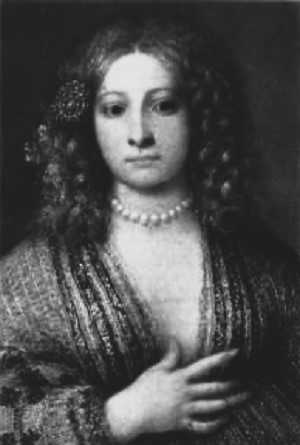Jan 08, 2026
Jan 08, 2026
... for female poets in sixteenth-century France
Ann Jones, in her excellent article on female Renaissance poets, writes the following: “Speaking out of silence, entering the terrain of male discourse from the margins, Pernette and Louise take over its central position as speakers and appropriate its rituals for their own ends. Their women's voices do more than modify poetic style. They rewrite the rules of the game.”
 Pernette du Guillet's Rimes is written mainly in the Neoplatonic vocabulary and the epigram form used by her fellow Lyonnais Maurice Scève who celebrated her as the heroine of his massive sequence of ten-line poems Délie. In her early poems Pernette presents herself as a humble disciple to Scève, whom she praises as her 'day', the man who has brought her spiritual illumination and poetic ambition. Where Scève speaks of his jealous torment as he imagines Délie's relationship with her husband, Pernette echoes but transforms Scève's words by stressing duty and honour as the pleasures of love. She alludes to Plato's Lysis, cites the love theory of contemporary Italian dialogues by Judah Leon Abrabanel and Sperone Speroni, and insists that the lover's goal is a transcendent spirituality. In poems written in response to Scève, she reminds him of the primacy of reason and spirit in ideal love.
Pernette du Guillet's Rimes is written mainly in the Neoplatonic vocabulary and the epigram form used by her fellow Lyonnais Maurice Scève who celebrated her as the heroine of his massive sequence of ten-line poems Délie. In her early poems Pernette presents herself as a humble disciple to Scève, whom she praises as her 'day', the man who has brought her spiritual illumination and poetic ambition. Where Scève speaks of his jealous torment as he imagines Délie's relationship with her husband, Pernette echoes but transforms Scève's words by stressing duty and honour as the pleasures of love. She alludes to Plato's Lysis, cites the love theory of contemporary Italian dialogues by Judah Leon Abrabanel and Sperone Speroni, and insists that the lover's goal is a transcendent spirituality. In poems written in response to Scève, she reminds him of the primacy of reason and spirit in ideal love.
In this connection, the ostensibly solitary 'I' of the female poet is addressed to a sophisticated reader whom she expects to be aware of the dialogue she is carrying out with the poetic practices of her time. Like her fellow Lyonnaise poet Louse Labé, Pernette du Guillet also entered into a man's world by the very fact that she published her own writings. Hence from her position on the margins of patriarchal literature and history she quietly challenged the norms of male-dominated poetry and fiction. Her works provided a space for socio-political debate in which women's voices and desires could be expressed. Although Pernette was influenced by the petrarchan conventions, she was perhaps less petrarchistic than Louise Labé. Some of her epigrams embody the conventional idea that the absence of the loved one is night, his presence day. There is a suggestion that the loved one's presence brings perception, the ability to see clearly, not just light but enlightenment. Here the blight of absence has multiple suggestions; there is the 'darkness at noon' paradox; the suggestion of intellectual blindness, a 'seeing' word with strong intellectual connotations, and the hint of a familiar experience - the terror experienced during absence, of forgetting some vital aspect of the loved one, such as face or voice. Furthermore, the tone is deepened by religious overtones since the object of her affection can be taken either as the Creator, who has given life to her loved one (often addressed as her 'day'), or the loved one himself who dissipates her mental darkness. This idea of light and dark in terms of enlightenment and mental night is even more explicit in another epigram, when the poet remarks that it no longer matters whether it is night or day since her loved one gives her spiritual or intellectual insight.
In many of her poems, the poet speaks of love in an abstract or intellectual way and makes no direct declaration of love. In poems where she does make such a declaration, Pernette du Guillet has adopted some strategies of avoiding or softening the surprise of hearing a woman's voice in a poem. Her mission is to write a poem which could equally have been composed by a man. Indeed, it requires outside knowledge to decipher that her poems were written by a woman. Nothing marks the persona of the poems as unmistakably male or female, and while reading the poems in isolation one could easily hear them in a man's voice.
Given the above, Pernette du Guillet's use of a hypercorrect Neoplatonism is a strategy for justifying her performance as a female poet. Since humility and chastity were virtues that corresponded to sixteenth century ideologies of proper feminine behaviour, she can redeem herself for daring to enter masculine poetic terrain by insisting on the purity of her method and motives. Her exemplary compliance with Neoplatonic ideals is a technique of compensatory assimilation: through fidelity to the love story of the philosophers and careful use of their poetic vocabulary, she circumvents social demands for women's silence and invisibility.
10-Sep-2022
More by : Attreyee Roy Chowdhury